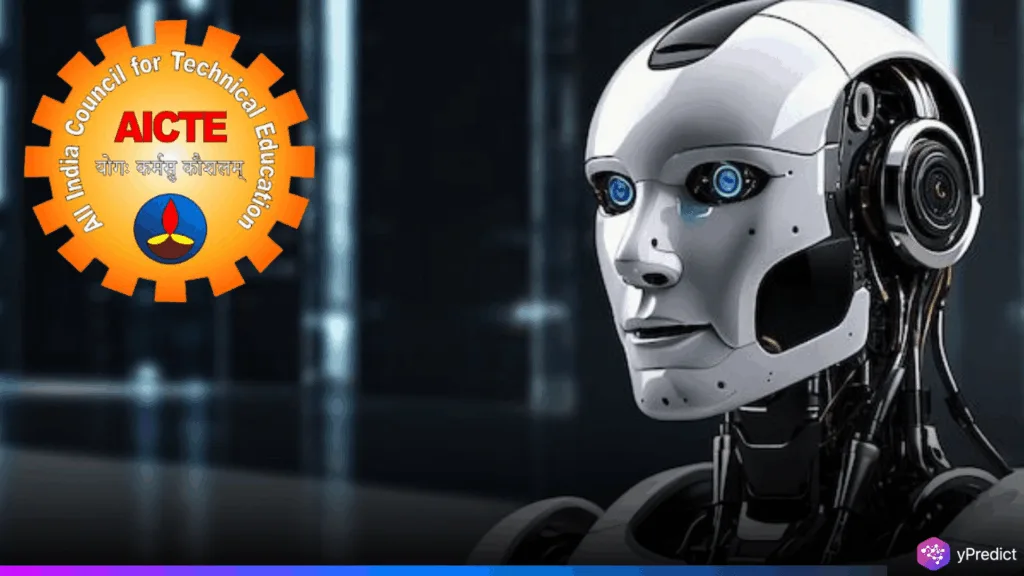
In a significant move, AICTE Chairperson TG Sitharam announced that AI in education will be expanded to cover all technical disciplines. This includes engineering, information technology, and management studies. The All India Council for Technical Education (AICTE) had already launched a BTech in AI and Data Science in 2017.
Now, the plan is to go beyond dedicated courses and embed AI in every branch. The change is intended to prepare students for careers fueled by analytics, automation, and machine learning. As part of this update, AI will be included in the technical curriculum starting next academic year. Another significant change for engineering colleges throughout India is that a committee of experts is finalizing integration recommendations.
How Will AI Shape Future Classrooms?
The new direction by AICTE includes upgrading the technical curriculum across disciplines to feature AI-related content. According to Sitharam, a special committee has already held three meetings to work out the scope and structure of the AI modules. Within a month, the committee is supposed to submit its report, and within two months, the revised curriculum should be finalized.
The council is aligning this move with India’s larger educational reform goals under the National Education Policy. By incorporating AI skills that are relevant to the industry, the curriculum changes are also anticipated to increase students’ employability. This also includes AI applications in manufacturing, data systems, and digital management. Also, after it is implemented, the change will change how teachers and students approach technical education in engineering schools.
AICTE Expands Digital Learning with Local Languages
AICTE is promoting regional language education in addition to integrating AI. Already, 1,000 textbooks in 12 Indian languages are accessible online, and they have been downloaded more than 700,000 times. Especially for students in rural and non-English-speaking areas, these resources aid in closing educational gaps. Furthermore, the content addresses fundamental technical topics, guaranteeing improved comprehension and memory.
Currently, 54 technical institutions are offering programs in these Indian languages, with plans to expand this network. AICTE aims to democratize education by making resources accessible regardless of geography or language barriers. Students in tier-2 and tier-3 cities are showing increased engagement with vernacular resources. Thus, these changes show that education in India is moving toward greater equity and inclusivity.
AI is also linked to the emphasis on Indian languages. Additionally, localized AI content will improve the technical education’s suitability for Indian settings. The AICTE is urging educational institutions to train their faculty to teach bilingualism.
AI in Education Driving India’s Digital Workforce
The integration of AI in education was highlighted during a meeting of Parliament’s advisory committee in Indore, chaired by Education Minister Dharmendra Pradhan. The session focused on improving the role of Indian languages in both school and higher education. Additionally, TG Sitharam outlined the council’s plan to combine state-of-the-art technology with multilingual accessibility.
Furthermore, to enable smooth curriculum rollouts, the Council is collaborating with universities and state governments. To support AI-based modules, this includes lab infrastructure, faculty development, and digital tools. Additionally, AICTE might publish guidelines to help institutions adapt to these changes. Consultations are being held with stakeholders to customize reforms to institutional capacities.
Pilot projects may start in a few colleges before a national rollout to guarantee successful adoption. Additional improvements will be shaped by the input from these pilots. Additionally, AICTE is looking into working with tech companies to provide real-world AI case studies. This will contribute to the development of an applied learning environment for engineering college students.
Will AI in Education Deliver Change?
The expansion of AI in education signals a transformative chapter for Indian academia. It aims to create future-ready professionals by combining inclusive teaching practices with modern technology. Thus, with improvements in the technical curriculum and the development of AI tools, India may become a leader in AI literacy worldwide. The success of this initiative may well define the next decade of technical learning in engineering colleges.






